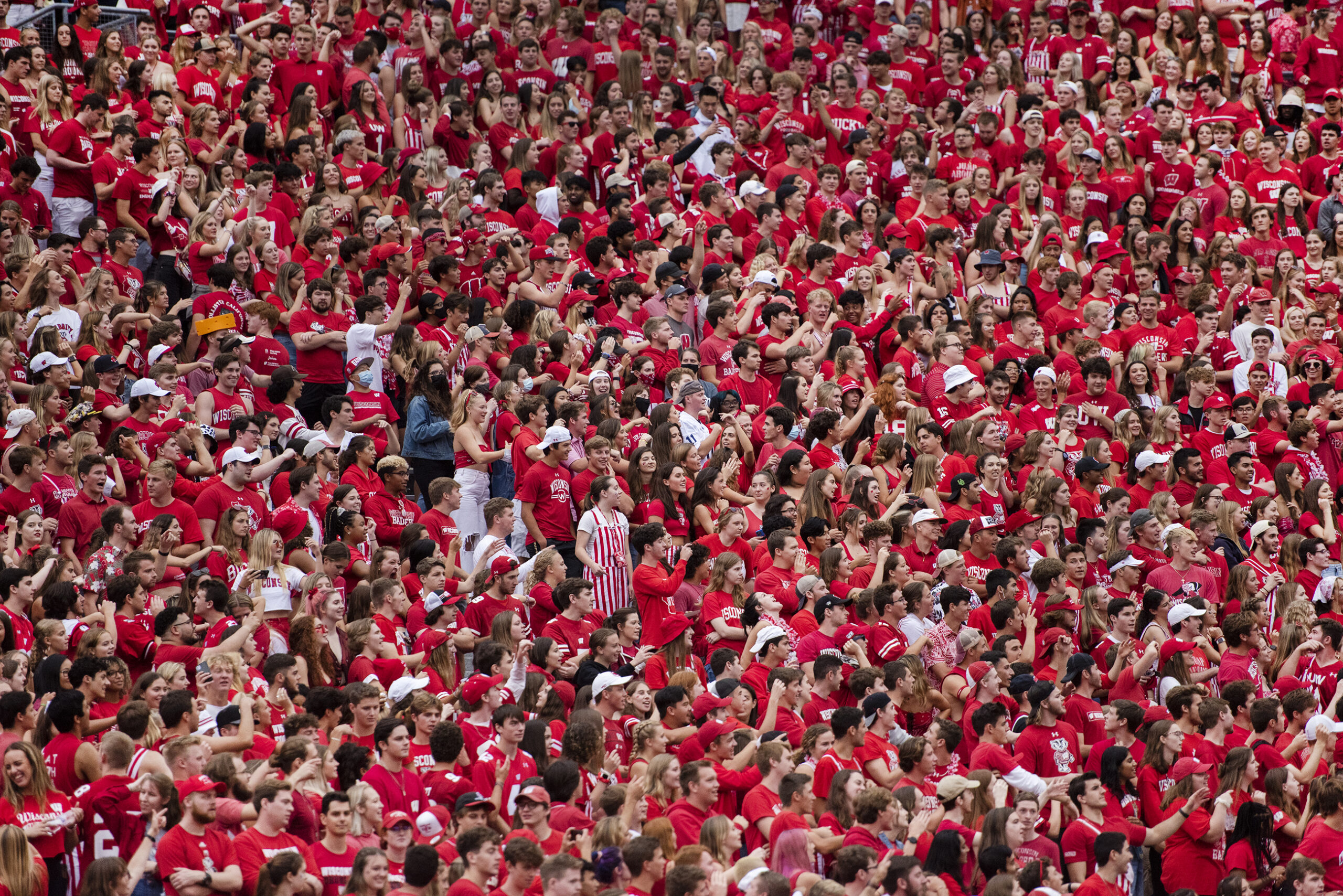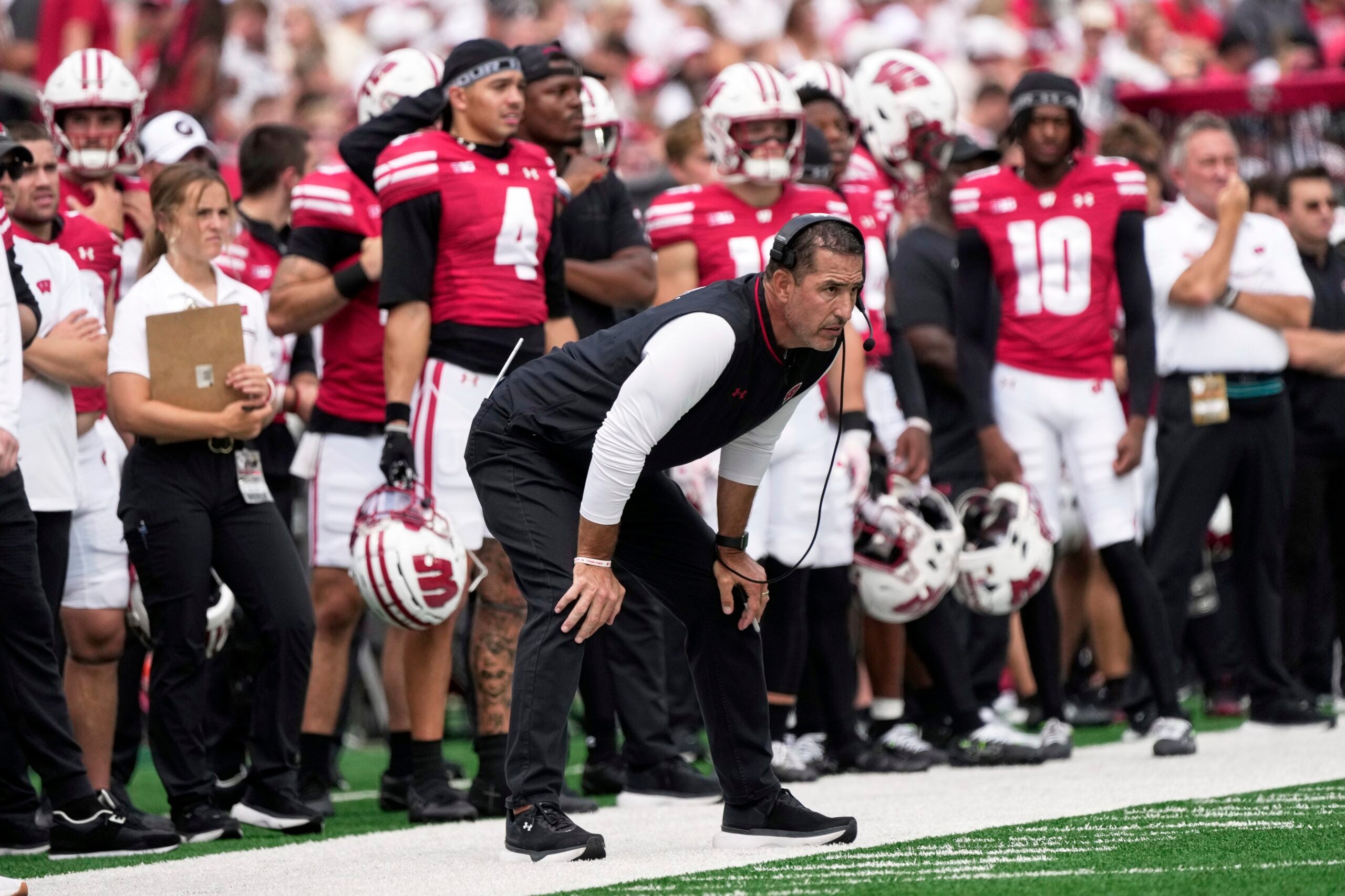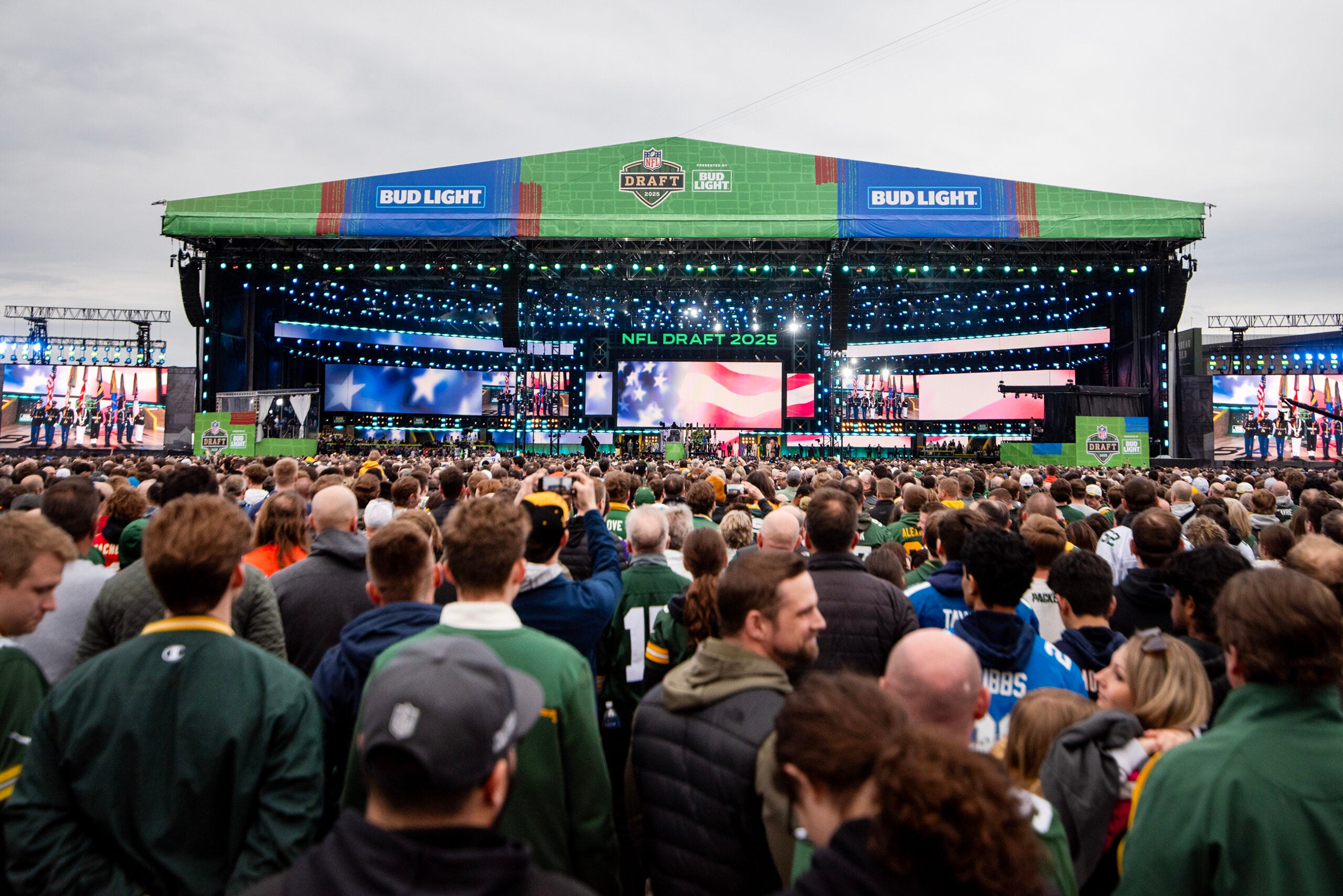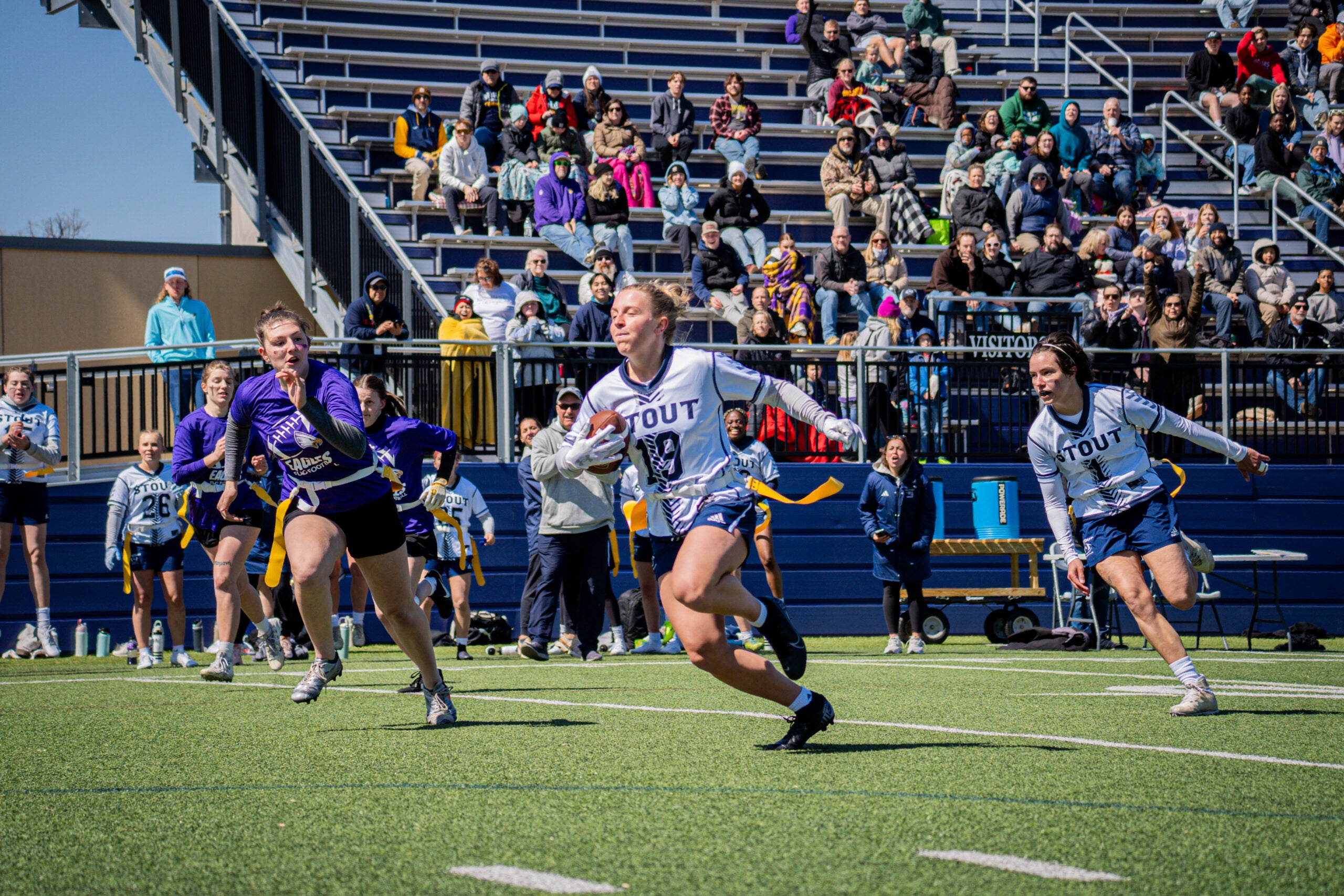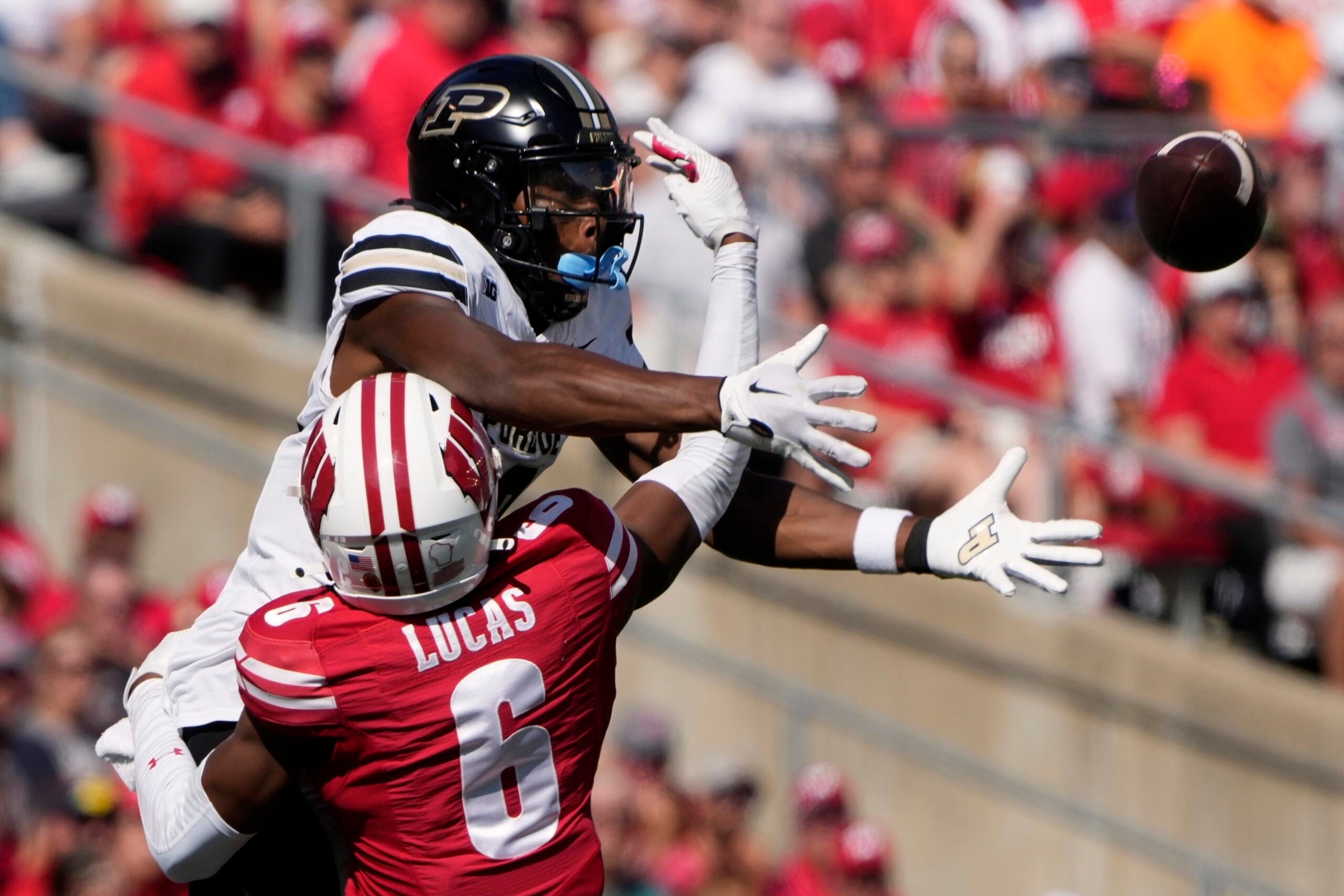Football fans at the University of Wisconsin-Madison will soon be allowed to buy alcohol throughout the stadium.
Previously, alcohol was only allowed in Camp Randall for those sitting in some premium suites.
The shift coincides with a growing trend. As of this upcoming season, Wisconsin’s flagship university will be the 16th Big 10 school to sell alcohol in general seating at football games.
News with a little more humanity
WPR’s “Wisconsin Today” newsletter keeps you connected to the state you love without feeling overwhelmed. No paywall. No agenda. No corporate filter.
And starting Aug. 30, UW-Madison will likewise sell booze in the Field House, which is home to the Badgers women’s volleyball and men’s wrestling teams.
Last year, the university started selling alcohol in general seating at the Kohl Center and the LaBahn arena. Events in those facilities include basketball and hockey games.
Madeline Rodriguez, a soon-to-be junior studying sports journalism at UW-Madison, said the change could pave the way for aggressive behavior at Camp Randall.
At the same time, she said it’s possible that allowing alcohol in a controlled environment could have the opposite effect.
“I think that not having alcohol in the stadium can sometimes encourage people to drink to excess beforehand because of fear that they won’t be able to drink in the stadium,” she said.
Adam Barry, a behavioral health professor at Texas A&M University, is skeptical of such arguments in favor of stadium sales.
“It goes against any and all data that we have in public health,” he said, pointing to research on the availability of substances, including alcohol and tobacco. “If you make it more accessible, use is going to increase. So increasing access isn’t going to decrease use.”
University officials say they’ll continue to scan the IDs of anyone who looks under 40, while increasing the game day presence of campus police.
People 21 and over will be able to purchase up to two alcoholic beverages at a time, including beer, wine or packaged seltzer.
A portion of the alcohol sales revenue will fund programming to “promote student wellness and to encourage responsible behavior around the use of alcohol.” As of Tuesday afternoon, a university spokesperson did not answer a question from WPR about what percentage of revenue will go toward those programs.
“The option to purchase alcohol is common at collegiate athletic venues all over the country, and we’re glad that we can now offer it as part of the fan experience at Camp Randall,” Chancellor Jennifer Mnookin said in a statement. “I appreciate the work our athletic and administrative teams have done to put together a plan that balances this opportunity with public safety.”
Among Big 10 schools, the University of Nebraska-Lincoln and Northwestern University are the only two schools that do not offer alcohol sales in general football seats.
At the University of Michigan, alcohol sales will start this fall in Michigan Stadium, which can seat over 100,000 spectators. Camp Randall has capacity for over 80,000 people.
Micah Sweet, an incoming first-year student at UW-Madison, said he supports the university’s decision, adding that the sales could be a good way to bring in revenue for athletics.
“This is Wisconsin, so it might increase excessive drinking,” he said. “But I feel like people who go to the games do want to watch football, and they probably won’t serve underage people.”
Research into alcohol and college stadiums is still limited, Barry said.
“I don’t think we have good data, honestly, on what happens when you take 100,000 people into a stadium and give them access to an intoxicant that is known to reduce their judgment, to reduce their ability to operate a motor vehicle, and also associated with increases in crime, physical assaults and violence,” he said.
But, he said, it appears financial motivations are driving universities across the country to make booze more accessible in stadiums.
“I would argue, too, schools themselves aren’t basing this decision on whether or not it’s good for public health,” he said. “They’re basing it on if it’s good for the bottom line.”
Wisconsin Public Radio, © Copyright 2025, Board of Regents of the University of Wisconsin System and Wisconsin Educational Communications Board.

